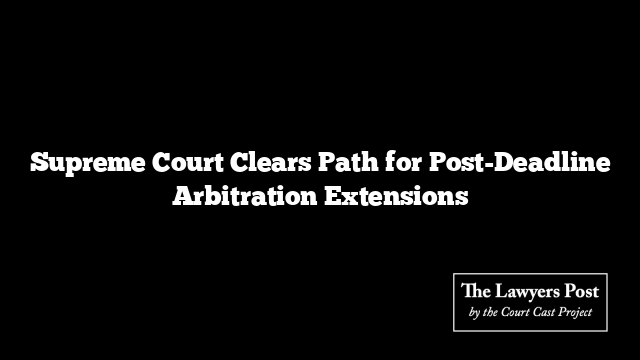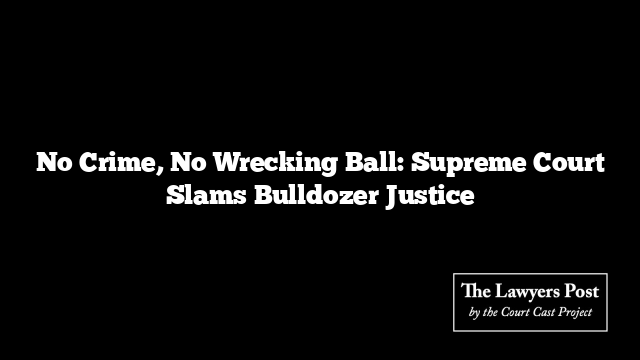In a significant ruling, the Supreme Court has held that the deadline for passing an arbitral award, as prescribed under Section 29A of the Arbitration and Conciliation Act, can be extended even after the statutory eighteen-month limit. This clarification came in response to a batch of appeals, with the Court stating that the termination of an arbitral mandate under Section 29A is not set in stone.
Section 29A outlines that arbitration awards must be rendered within twelve months of completing pleadings, with an optional six-month extension if both parties consent. Should the award fail to be issued within this timeframe, the arbitral mandate is terminated unless extended by court intervention.
The Court, however, emphasized that such termination is not absolute. An application to extend the deadline can still be filed after the expiration of the eighteen-month window, provided sufficient cause is demonstrated.
The Bench, comprising Justices Sanjiv Khanna and R Mahadevan, took a broader view of Section 29A, highlighting that the law intends to maintain flexibility for courts to grant extensions when warranted. They pointed out that a rigid interpretation of the word “terminate” could lead to impractical and restrictive outcomes.
“Courts should be cautious about imposing limitations that the legislature did not include,” the Court remarked. By reading a narrow interpretation into the law, courts could unintentionally create judicial legislation, imposing undue constraints that the law does not require.
The ruling also addressed concerns about abuse of the process, noting that judicial discretion ensures extensions are granted only for genuine reasons, not frivolous or vexatious applications. This discretion serves as a safeguard against misuse, and courts can impose terms and conditions when granting extensions.
The Supreme Court’s ruling came after divergent opinions from various High Courts, some of which held that any extension application must be made within the initial eighteen months. The top court rejected this view, calling for a more pragmatic approach to ensure the law serves its intended purpose without encouraging rushed or premature court applications.
The decision establishes that extensions can be sought and granted after the deadline, provided there is sufficient cause, giving courts the necessary latitude to prevent undue consequences while upholding the principle of timely arbitration.





